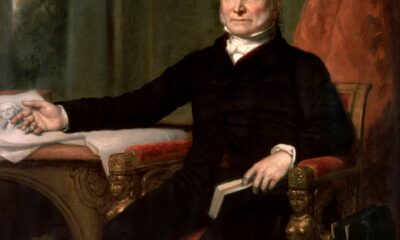Ignite the Pulpit
Humility: Jewish critique of Spinoza 1

Two things prompted the reissue of this essay on humility. One is the arrogance displayed in the current American Presidential debates. The other is a recent essay in praise of Spinoza penned by Rabbi David Cardozo, dean of the Academy for Jewish Studies and Human Dignity in Israel.
One participant in the presidential debates is Dr. Ben Carson, ostensibly a humble person, who pulled out of the debates to endorse the candidacy of business tycoon Donald Trump, whose self-image, some may say, stands in striking contrast to that of Dr. Carson. Let us seek higher ground.
Humility in the Law of Moses
It is a remarkable fact that the Hebrew word for humility, anav, is the only adjective used in the Bible of Israel to describe the man Moses. The noun form of anav is anava. The word appears in Numbers 12:3. “Now the man Moses was very humble (anav), above all the men that were on the face of the earth.”
Strange that the Torah uses no other adjective to characterize a man so extraordinary as Moses. After all, though supremely humble, Moses is also known as the wisest man that ever lived – and not only by Jews.[1] Yet we find in the Torah not the lofty adjective “wise” but only the lowly anav to characterize mankind’s greatest teacher and law-giver.
One might conclude from the foregoing that humility ranks above wisdom in the Torah order of values. What makes this problematic is that such words as “humility” or “modesty” fail to capture the meaning of anava, a concept that radically distinguishes the Judaism not only from Christianity and Islam, but from the entire Western philosophic tradition.
Humility in Jewish v. Western and Muslim tradition
Christian humility is rooted in “original sin,” a concept foreign to Judaism. In contrast, Islamic man is distinguished less by humility than by pride. As various scholars have observed, Arab-Islamic literature is replete with examples of self-glorification on the one hand, and a denial of personal responsibility for misfortune on the other.[2]
As for Greek philosophy, it is true that Socrates, most famously in Plato’s dialogue the Apology, professes ignorance regarding the most important questions of human life. But this is not anava so much as modesty couched in Socratic irony and rooted in restrained skepticism. Upon his death as portrayed in the Phaedo, Socrates is described as the “noblest,” “wisest,” and “justest” man of his time. No Greek would be praised for being humble. To the contrary, Aristotle extols pride (megalopsychia) or magnanimity as the adornment of the virtues. The magnanimous or large-souled man is one who deems himself worthy of great things, especially honor, and not as a result of vulgar conceit but from a (supposedly) just estimate of his worth or merit. He deserves much because he “possesses greatness in every virtue.” Aristotle’s thoughts about the magnanimous man may be summarized as follows:
The object with which the magnanimous man is particularly concerned is honor. Great honors accorded by persons of worth will afford him pleasure in a moderate degree; he believes he is receiving only what belongs to him, or even less, for no honor can be adequate to the merits of perfect virtue. Honors rendered by common people he will utterly despise. In fact, he does not care much even about receiving honor, which is the greatest of external goods. Rather, he is fond of conferring benefits, but ashamed to receive them.
It is also characteristic of the magnanimous man to be haughty toward men of position and fortune. Furthermore, he cares more for truth than for what other people think. Hence he will speak frankly and openly, since concealment shows timidity. As a consequence, he is bound to make enemies. Nevertheless, he does not bear a grudge, for it is not the mark of greatness of soul to recall things against people, especially wrongs they have done you, but rather to overlook them.
Clearly, humility is absent from the soul of magnanimous man, whose description may be taken for that of the philosopher. But as already noted, Aristotle regarded humility as a vice.
Spinoza on humility

Baruch de Spinoza. Portrait by an unknown artist, ca. 1665. Now hanging in the Gemäldesammlung der Herzog August Bibliothek, Wolfenbüttel, Germany
Consider, now, the modern attitude toward humility. The first systematic treatment of the subject will be found in Spinoza’s most important philosophical work, the Ethics. Spinoza, it is commonly believed, was a “rationalist,” a view which gains credence from his having patterned the Ethics after Euclidean geometry. Of course, Spinoza is also known as a philosopher who wrote the first extensive critique of the Torah denying its divine origin.[3]
Spinoza approaches the problem of humility by way of the emotions, specifically, the emotion of “dejection.”[4] Before considering his explanation of this remarkable statement, it should be made explicit that, for Spinoza, “Humility is not a virtue, or does not arise from reason” (Prop. LIII). Humility is pain accompanied by the idea of one’s weakness or one’s power of activity being checked. Inasmuch as “pain,” according to Spinoza, “is a transition of a man from a greater to a lesser perfection” (Prop. LIX, Def. III), humility, far from being a virtue, is an emotional barrier to human perfection.
This perhaps startling but logically unavoidable conclusion may also be deduced from Spinoza’s conception of what he calls “self-approval.” “Self-approval may also arise from reason …” (Prop. LII). It is “pleasure arising from a man’s contemplation of himself and his power of action” (ibid., Proof). To this extent, and to this extent only, Spinoza’s definition of self-approval is consistent with Aristotle’s understanding of pride. This may be called “rational” as opposed to “non-rational” pride because Spinoza defines pride as “pleasure arising from man’s overestimation of himself” (Prop. LVII, Proof). But given his definition of pleasure as “the transition of a man from a lesser to a greater perfection,” it follows that non-rational pride is conducive to human perfection! Surely Spinoza does not intend such a conclusion. Hence, rather than conclude that he has fallen into a contradiction, it would be more reasonable to assume that when Spinoza speaks of self-approval, he is using the term as a euphemism for pride.
Bearing this in mind, Spinoza continues: “Self-approval is in reality the highest object for which one can hope. For … no one endeavors to preserve his being for the sake of any ulterior object, and as self-approval [i.e. pride] is more and more fostered and strengthened by praise … fame [not humility or anava] becomes the most powerful incitement to action …” (Prop. LII, Note). Viewed in this light, humility is contrary to human nature, that is, to what is truly human.
This seemingly paradoxical conclusion requires for its clarification some understanding of Spinoza’s conception of virtue on the one hand, and of human nature on the other. Like Machiavelli, whom he admired, Spinoza identifies virtue with power.[5] “By virtue (virtus) and power I mean the same thing; that is … virtue, in so far as it is referred to man, is a man’s nature or essence, in so far as it has the power of effecting what can be understood by the laws of that nature” (Def. VIII). For Spinoza the most fundamental law of nature is self-preservation.[6]
“The effort for self-preservation is the first and only foundation of virtue” (Prop. XXII, cor.). Accordingly, “the more a man endeavors, and is able to preserve his own being, the more endowed with virtue, and, consequently in so far as he neglects his own being, he is wanting in power” (Prop. XX). By preserving one’s own being Spinoza means more than physical self-preservation. He has in view nothing less than the contemporary notion of self-actualization. Thus was developed the philosophic doctrine of egoism, a doctrine which is utterly opposed to anava and to its superficial renderings such as humility or modesty.[7]
(To be continued)
[1] Numenius of Syria, a gentile philosopher of the second century, regarded Moses as the first and greatest of the philosophers.
[2] See Gabriel Ben-Dor (ed.), The Palestinians and the Middle East Conflict (Ramat Gan, Israel: Turtledove Publishing, 1978), p. 123: “ the illiterate Muslim, living in squalor and filth … was actually feeling as naturally superior to the Jew … as English aristocrats would in olden days feel toward Cockneys …” Arab sociologist Sonia Hamady writes: “The Arab is reluctant to assume responsibility for his personal or national misfortunes, and he is inclined to put the entire blame on the shoulders of others.” Cited in Y. Harkabi, Arab Attitudes to Israel (Jerusalem: Keter, 1972), p. 125.
[3] See Spinoza, Theologico-Political Treatise. Spinoza was the darling of the 19th century bible critics of Germany.
[4] Spinoza was influenced by Hobbes who defined “dejection” as “Grief, from opinion of want of power.” See Hobbes, Leviathan (Oxford: Basil Blackwell, 1955), pp. 36, 46. Spinoza writes: “Though dejection is the emotion contrary to pride, yet the dejected man is very nearly akin to the proud man.” Ethics (New York: Tudor Publishing Co., n.d.). Part IV, Prop. LVII, Note, Elwes, trans. Unless otherwise indicated, all further references to the Ethics are from Part IV and will be cited between parentheses in the text.
[5] See Spinoza, Political Treatise, ch. 5, sect. 7.
[6] Ibid., ch. III. sect. 18, which is drawn largely from Hobbes’ Leviathan.
[7] One should not be misled by Spinoza’s saying that “The mind’s highest good is knowledge of God, and the mind’s highest virtue is to know God” (Prop. XXVIII). Spinoza’s God is nothing more than nature.
-

 Civilization4 days ago
Civilization4 days agoWhy Europe Shouldn’t Be Upset at Trump’s Venezuelan Actions
-

 Executive5 days ago
Executive5 days agoHow Relaxed COVID-Era Rules Fueled Minnesota’s Biggest Scam
-

 Christianity Today4 days ago
Christianity Today4 days agoSurprising Revival: Gen Z Men & Highly Educated Lead Return to Religion
-

 Civilization5 days ago
Civilization5 days agoThe End of Purple States and Competitive Districts
-

 Executive4 days ago
Executive4 days agoWaste of the Day: Can You Hear Me Now?
-

 Civilization2 days ago
Civilization2 days agoTariffs, the Supreme Court, and the Andrew Jackson Gambit
-

 Civilization2 days ago
Civilization2 days agoWhy Europe’s Institutional Status Quo is Now a Security Risk
-

 Civilization3 days ago
Civilization3 days agoDeporting Censorship: US Targets UK Government Ally Over Free Speech












Ron Chronicle liked this on Facebook.